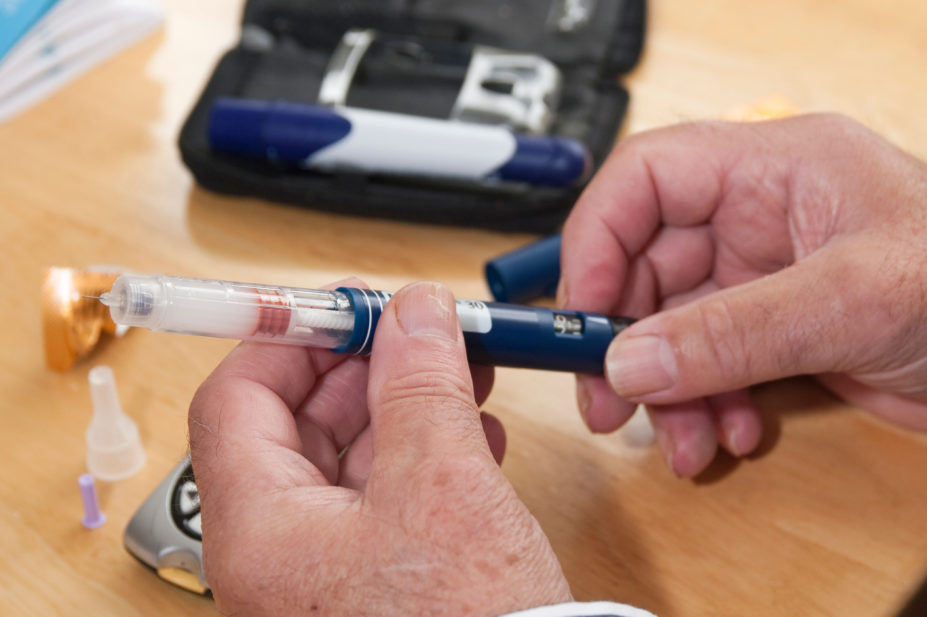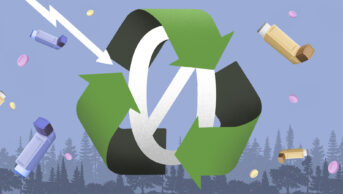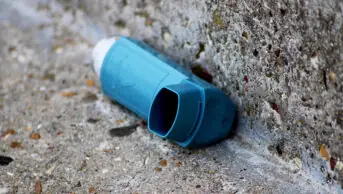
Baron Bratby / Alamy Stock Photo
A pharmaceutical company is aiming to prevent more than one million pre-filled plastic injection pen devices ending up in landfill or being incinerated by the end of 2022, through a scheme that is being piloted in pharmacies in three areas of the UK.
The PenCycle scheme, launched by Novo Nordisk on 1 November 2021, enables patients that use the company’s pre-filled FlexPen and FlexTouch devices to return them for recycling through local participating community pharmacies or through pre-paid Royal Mail boxes.
The scheme to recycle the devices — which are used by patients with diabetes, obesity and growth disorders to dispense insulin and other medications — is thought to be the first of its kind in the UK.
In 2020/2021, nearly 2.5 million FlexPen and FlexTouch devices containing insulin were dispensed from community pharmacies in England.
The recycling scheme, which is being run in partnership with Alliance Healthcare, LloydsPharmacy, the National Pharmacy Association (NPA) and Royal Mail, will be piloted in 13 clinical commissioning groups in Greater Manchester and Leicestershire and Rutland, as well as in the Greater Glasgow and Clyde health board, ahead of a planned national rollout in 2022.
Any pharmacy in the pilot areas can sign up to join the scheme, and participating pharmacies will be sent practical guidance on the initiative, patient information and materials for patients to take home.
These include a return box, which patients can fill with 12 used pen devices at home — with the needle removed — before returning them to the pharmacy.
The pharmacy then stores filled return boxes in a recycling bin provided by the scheme, which is collected by Alliance Healthcare during a scheduled delivery slot.
Pharmacies will only accept pen devices used for diabetes and weight management, with growth hormone pens collected only by a home delivery service run by Novo Nordisk, as the growth hormone is a controlled drug.
The pens will be sent to Denmark, where Novo Nordisk is headquartered, for the plastic to be recycled into a range of items, such as chairs and lightbulbs.
When announcing the scheme, Novo Nordisk said in a statement that it aims to recycle more than 150,000 pen devices from the pilot locations by June 2022, ensuring more than 2 tonnes of plastic material is diverted from UK landfill.
At the end of 2022, it expects that 1.1 million pen devices will have been recycled, with the potential to recycle more than 3 million pen devices in 2023, preventing more than 56 tonnes of plastic waste.
Laura Sims, head of membership for the NPA, said the association was pleased to be “helping our members understand the benefits of the pilot scheme and how to take part”.
“Community pharmacies dispense more than a billion prescription items each year and can greatly increase sustainability through recycling.”
Kevin Birch, chief retail officer at LloydsPharmacy, added that “reducing plastic waste in our healthcare settings is a key part of our approach, and so we’re delighted to be supporting PenCycle recycling initiative”.
“Now, our customers can conveniently return their empty insulin pens when collecting their next prescription — a recycling decision that’s easy for them and great for the environment.”
Pinder Sahota, general manager for Novo Nordisk in the UK, noted that Novo Nordisk was “the first pharmaceutical company to run all of [its] production through renewable power, and now we are taking on the challenge of recycling our plastic pen devices”.
He added that the scheme focused on partnering with community pharmacies “to ensure that people have varied and convenient options to recycle their pre-filled injection pen devices”.
Inhaler recycling
In February 2021, Chiesi launched the UK’s first postal inhaler recycling scheme in Leicestershire and Rutland to sustainably dispose of empty and unwanted inhalers of any brand or type.
The scheme reuses aluminium canisters, while the plastic components are put back into the plastic supply chain, and any remaining propellant gas is extracted and reused in items such as fridges and air conditioning units.
However, as of July 2021, Chiesi said that, out of 227 pharmacies invited to participate, only 141 had signed up to take part.
The launch of Chiesi’s sheme followed the closure of GSK’s inhaler recycling programme in 2020, after running for nine years, with the company saying that it “believes there needs to be a focus on a wider, joint-working approach across industry, rather than our own standalone approach”.
Despite slow progress in this area, NHS England told The Pharmaceutical Journal in August 2021 that it has no plans for a national inhaler recycling scheme.
Read more: Greener inhalers — are we setting the wrong targets?


